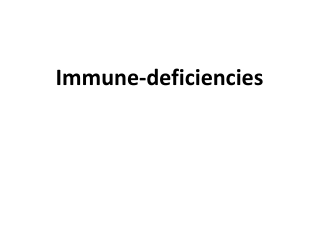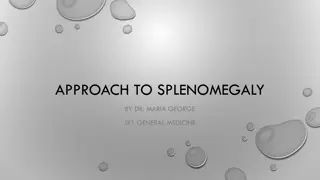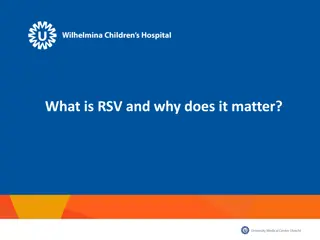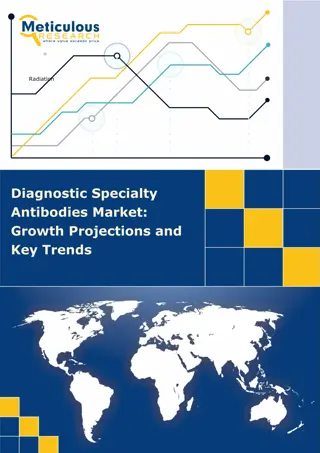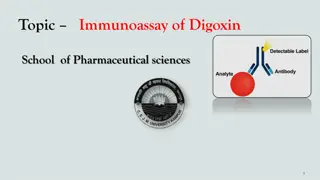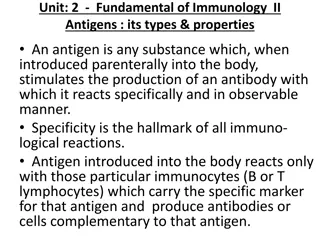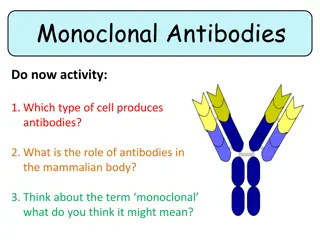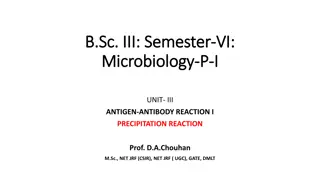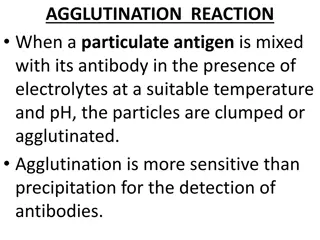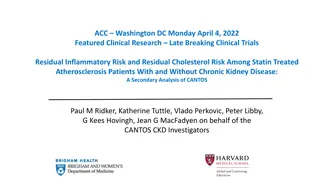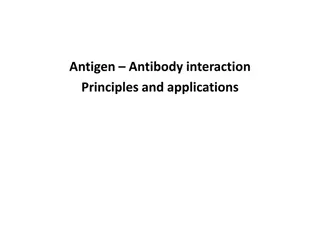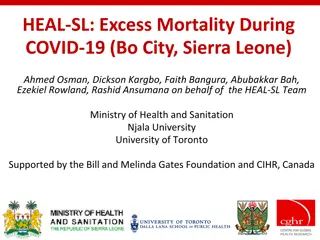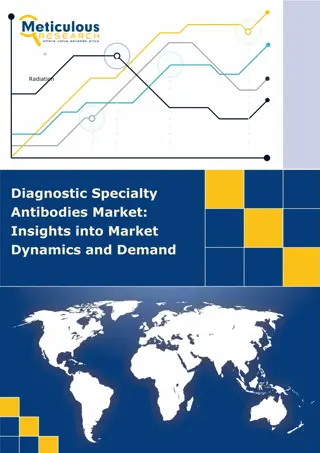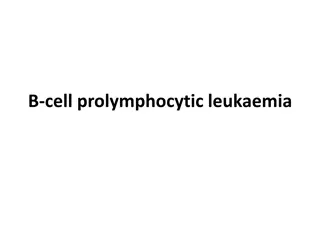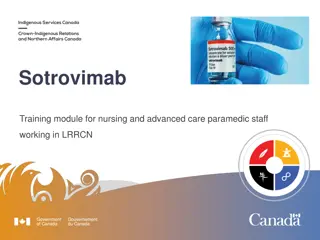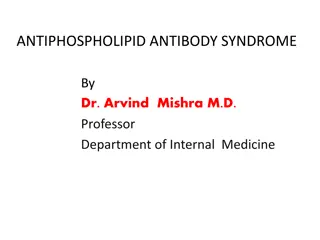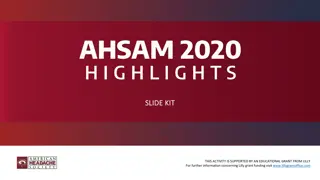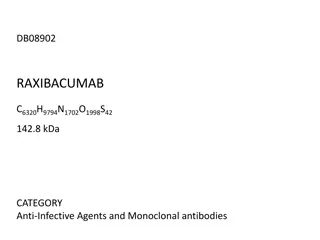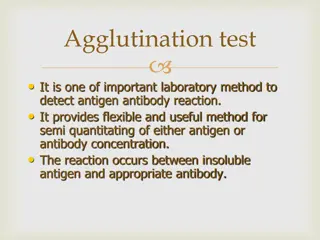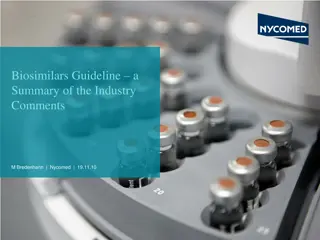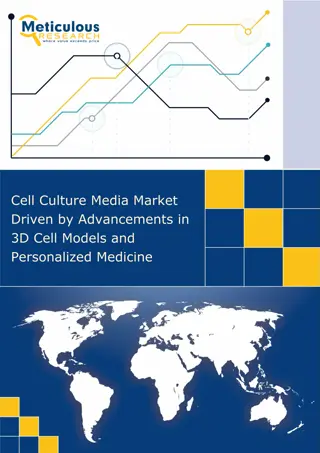Pharmaceutical-Contract-Development-and-Manufacturing-Market
In addition, the growing demand for cell and gene therapies and personalized medicines and growth in the High-potency Active Pharmaceutical Ingredients (HPAPI) and Antibody-drug Conjugates (ADC) markets are expected to offer significant opportunities for the growth of the pharmaceutical contract dev
1 views • 4 slides
Immune-deficiencies
Immune deficiencies can be classified into primary hereditary disorders based on clinical presentations, including cell-mediated, antibody-mediated, non-specific, and complement activation deficiencies. Major clinical manifestations of immune disorders range from B-cell deficiencies to phagocytic ce
2 views • 46 slides
Transfusion
Blood transfusion is a crucial medical procedure worldwide, with various components like packed red blood cells, plasma, platelets, and cryoprecipitate being utilized for efficient use. Differential centrifugation is employed for component preparation, ensuring precise separation of red blood cells,
2 views • 45 slides
Cell Culture Reagents Market Application, Size, Demand and Growth
The growth of this market is driven by factors such as the rising demand for monoclonal bodies, the increasing prevalence of chronic diseases, funding for cell-based research, and an increase in R&D spending in the life science sector. Furthermore, the growing adoption of 3D cell culture, the growth
0 views • 3 slides
Targeting human exosomes via bispecific antibody platform
Explore the potential of targeting human exosomes using a bispecific antibody platform, enhancing drug delivery capabilities. The study delves into engineering exosomes as drug carriers, developing exosome targeting antibodies (ExTAbs), and verifying exosome delivery efficiency. Future directions in
7 views • 12 slides
APPROACH TO SPLENOMEGALY
The spleen, an important organ in the reticuloendothelial system, plays key roles in red blood cell quality control, antibody synthesis, and removal of bacteria and red blood cells. Understanding normal spleen size and functions is crucial in diagnosing splenomegaly, which can be due to various caus
4 views • 33 slides
Understanding RSV and its Global Impact
RSV, or respiratory syncytial virus, is a significant global health concern causing severe respiratory infections, particularly affecting young children. It leads to pediatric hospitalizations and mortality, with a high burden in low- and middle-income countries. Prevention strategies, such as long-
7 views • 23 slides
continous bioprocessing market
\nContinuous Bioprocessing Market by Product (Filtration, Chromatography, Bioreactor, Incubator, Centrifuge, Reagents) Process (Upstream, Downstream) Application (Monoclonal Antibodies, Vaccines, Plasma Fractionation, R&D) End User - Global Forecast to 2031
1 views • 3 slides
The Role of Gemtuzumab 4.5 mg in Precision Oncology
\n\nGemtuzumab 4.5 mg is a monoclonal antibody that targets CD33 antigen, which is found on the surface of leukemia cells. In precision oncology, this drug has been used to treat patients with acute myeloid leukemia (AML) who are deemed appropriate for this therapy. It has been shown to increase sur
1 views • 3 slides
Diagnostic Specialty Antibodies Market is expected to grow at a CAGR of 4.6% fro
Diagnostic Specialty Antibodies Market by Type (Primary, Secondary), Clonality (Monoclonal, Polyclonal), Technique (WB, Rapid Test, IHC, IP), Conjugate, and Application (Dengue, Malaria, Hepatitis, HIV, E. coli , Tuberculosis, Pneumonia, Cancer)- For
0 views • 6 slides
Planning Your Flow Cytometry Experiment: Building a Staining Panel
For successful flow cytometry experiments, it is crucial to plan your staining panel carefully by selecting appropriate markers and antibodies. Determine the goal of your experiment, research historical data for similar experiments, and choose markers specific to your cell type. Utilize resources fo
0 views • 19 slides
Understanding Immunoassay of Digoxin in Pharmaceutical Sciences
Immunoassay is an analytical method utilizing specific antibody-antigen reactions to determine reactant amounts. This method involves competitive binding between labeled and unlabeled analytes and specific antibodies. Antibodies, antigens, labels, and separation matrices play crucial roles in immuno
0 views • 29 slides
Understanding Antigens and Immunogens: Types and Properties
Antigens are substances that stimulate the production of antibodies in the body, exhibiting specificity in immune reactions. They interact with immune response products like antibodies, BCRs, and TCRs. Immunogens induce detectable immune responses, leading to antibody production or T cell activation
1 views • 30 slides
Understanding Monoclonal Antibodies in Medical Treatment
Monoclonal antibodies are created using hybridoma cells that can produce specific antibodies and divide rapidly. These antibodies, which target specific antigens, have various applications in medicine, such as in cancer treatment and pregnancy tests. By harnessing the immune system's abilities, mono
1 views • 19 slides
Immunology Testing in Pernicious Anaemia: A Quick Guide
The article by Dr. Charu, a Consultant Immunologist, provides insights into immunology testing for Pernicious Anaemia (PA). It covers considerations for PA diagnosis, prevalence data, and details intrinsic factor antibody and gastric parietal cell antibody tests. Guidelines for diagnosis and treatme
0 views • 9 slides
Understanding Antigen-Antibody Precipitation Reaction in Microbiology
Antigen-antibody precipitation reaction involves the formation of insoluble products when a soluble bivalent antibody interacts with a soluble antigen. This reaction leads to the formation of a visible precipitate known as a lattice. The mechanism of precipitation, including the prozone phenomenon,
0 views • 20 slides
Understanding Antigen-Antibody Reaction: Agglutination Tests and Coombs' Antiglobulin Test
Learn about the principle and types of agglutination tests, including slide and tube agglutination, used for identifying bacterial isolates and blood grouping. Discover the importance of Coombs' test in detecting incomplete antibodies. Explore the applications and techniques involved in these immuno
2 views • 13 slides
Understanding Agglutination Reactions in Immunology
Agglutination reaction is a key technique in immunology where particulate antigens and antibodies clump together in the presence of electrolytes. This reaction is highly sensitive and often used for antibody detection, bacterial identification, blood grouping, and cross-matching. The process involve
0 views • 20 slides
Residual Inflammatory and Cholesterol Risks in Atherosclerosis Patients
In a secondary analysis of the CANTOS study, researchers evaluated the impact of residual inflammatory risk and residual cholesterol risk in a large cohort of atherosclerosis patients already receiving lipid-lowering therapy. Results showed the relative contributions of inflammation and cholesterol
0 views • 11 slides
Understanding Antibody-Mediated Immunity in Humoral Immunity
This content delves into the mechanisms of antibody-mediated immunity, focusing on B-cells as key players in humoral immunity. It covers topics such as activation of B-cells, clonal selection, generation of plasma and memory cells, primary and secondary immune responses, and the structure and functi
0 views • 20 slides
Understanding Antigen-Antibody Interactions and Diagnostic Tests
Antigen-antibody interactions are essential in immunology, determining disease presence, blood types, and more. Diagnostic tests such as agglutination and precipitation reactions play a crucial role. Specimen collection involves obtaining blood samples for analysis, while precipitation reactions for
0 views • 22 slides
Understanding Nephelometry and Turbidimetry in Clinical Applications
Nephelometry and turbidimetry are analytical techniques used in clinical settings to measure the amount of light scattered or absorbed by particles in suspension. Turbidimetry focuses on the amount of transmitted light, while nephelometry measures scattered light. Both methods are valuable in determ
0 views • 22 slides
Insights on Excess Mortality and COVID-19 Prevalence in Bo City, Sierra Leone
Study by the HEAL-SL team examines excess mortality during the COVID-19 pandemic in Bo City, Sierra Leone. Findings suggest potential underreporting of COVID-related deaths and highlight the importance of seroprevalence studies in understanding the impact of the virus. The research includes analysis
6 views • 14 slides
Understanding Monoclonal Antibodies in Animal Biotechnology
Monoclonal antibodies (mAb) play a crucial role in identifying and neutralizing foreign substances in the body. This article delves into the significance of monoclonal antibodies, their structure, development history, and the revolutionary hybridoma technology. Explore the world of antibodies and th
0 views • 12 slides
Diagnostic Specialty Antibodies Market, Diagnostic Antibody, Infectious Disease
Diagnostic Specialty Antibodies Market by Type (Primary, Secondary), Clonality (Monoclonal, Polyclonal), Technique (WB, Rapid Test, IHC, IP), Conjugate, and Application (Dengue, Malaria, Hepatitis, HIV, E. coli , Tuberculosis, Pneumonia, Cancer)- For
0 views • 3 slides
Diagnostic Specialty Antibodies Market: Opportunities in Developing Regions
Diagnostic Specialty Antibodies Market by Type (Primary, Secondary), Clonality (Monoclonal, Polyclonal), Technique (WB, Rapid Test, IHC, IP), Conjugate, and Application (Dengue, Malaria, Hepatitis, HIV, E. coli , Tuberculosis, Pneumonia, Cancer)- For
0 views • 3 slides
Understanding B-Cell Prolymphocytic Leukaemia and CLL-Related Conditions
B-cell prolymphocytic leukaemia (B-PLL) is a rare disorder that mainly affects older patients, presenting with splenomegaly and high white blood cell counts. CLL-related conditions like Monoclonal B-cell lymphocytosis and Richter's syndrome can further complicate the prognosis, especially in elderly
0 views • 23 slides
Sotrovimab Training Module for Healthcare Professionals
The Sotrovimab training module is designed for nursing and advanced care paramedic staff working in certain healthcare settings. It covers the uses, indications, administration procedure, eligibility criteria, and follow-up care for Sotrovimab, an antiviral monoclonal antibody developed for mild to
0 views • 26 slides
Global Cell Culture Market Set to Soar to $48.63 Billion by 2029, Driven by Strong Growth in Biopharma and Rising Demand for Monoclonal Antibodies
Cell Culture Market by Product [Consumables (Media, Reagents, Sera, Cell Lines), Equipment (Bioreactor, Centrifuge, Cell Counter)], Application (Bioproduction, Cancer Research, Stem Cell, Diagnostic), End User (Pharma, academic) - Global Forecast to
0 views • 5 slides
Understanding Antibody Screening and Pre-Transfusion Tests
In-house cell panel development, pre-transfusion compatibility testing, antibody screening methods, and the importance of ABO and Rh typing are discussed in detail. Steps for safe blood transfusion, reverse ABO grouping, AST testing for irregular antibodies, and selection criteria for screen cells i
0 views • 28 slides
Understanding Antiphospholipid Antibody Syndrome and Its Clinical Implications
Antiphospholipid antibody syndrome is an acquired disorder characterized by recurrent thrombosis or pregnancy complications due to autoantibodies against phospholipid-binding plasma proteins. Learn about its classification, epidemiology, pathogenesis, and diagnostic antibodies. Discover how lupus an
0 views • 35 slides
Serological Work Up: Anti-Jra Antibody in Pregnancy Amid Global Pandemic
Serological work up in an antenatal patient with the identification of a rare anti-Jra antibody, management challenges, and referral for Jra phenotyping. The presence of other significant antibodies excluded, highlighting the importance of accurate blood group testing and potential risks in red cell
0 views • 27 slides
Understanding Eligibility for Novel CGRP Monoclonal Antibodies in Migraine Patients
Characteristics of individuals eligible for novel CGRP monoclonal antibodies in migraine treatment were studied, revealing insights on access to preventive treatments for migraine patients. The American Headache Society highlights the importance of empirical research to enhance access to preventativ
0 views • 8 slides
Diagnostic Approaches in Hematologic Disorders: A Comprehensive Overview
Explore the diagnostic considerations for multiple myeloma, monoclonal gammopathy of undetermined significance (MGUS), and related conditions, including indications for serum protein electrophoresis (SPEP) and free light chain (FLC) testing. Learn when not to order SPEP and FLC, and consider various
0 views • 24 slides
Raxibacumab: Monoclonal Antibody for Inhalational Anthrax
Raxibacumab is a human IgG1 monoclonal antibody designed to treat and prevent inhalational anthrax caused by Bacillus anthracis. It targets the protective antigen component of the anthrax toxin, inhibiting its binding to cellular receptors and preventing toxin entry. Administered via IV infusion, Ra
0 views • 6 slides
Advancements in Alzheimer Disease Therapeutics Program
The MGB Alzheimer Therapeutics Program is a collaborative effort leading to groundbreaking disease-modifying therapies for Alzheimer's disease. The development of Lecanemab (Leqembi), a monoclonal antibody targeting amyloid plaques, offers a new option to slow disease progression. The program's focu
0 views • 21 slides
Understanding Agglutination Test in Laboratory Methods
Agglutination test is a vital laboratory method for detecting antigen-antibody reactions. It involves a two-step process of sensitization and lattice formation, resulting in visible clumping or agglutination. This test is versatile, providing a semi-quantitative measure of antigen or antibody concen
0 views • 13 slides
Understanding Biosimilars: Summary and Discussion
Biosimilars are biological medicines similar but not identical to reference products. They are complex mixtures with specific properties, impacting patient safety. The production process determines the characteristics of biosimilars, with monoclonal antibodies being especially complex. Explore the s
0 views • 29 slides
Diagnostic Specialty Antibodies Market Poised to Hit $39.99 Billion by 2029
Meticulous Research\u00ae\u2014a leading global market research company published a research report titled \u201cDiagnostic Specialty Antibodies Market by Type (Primary, Secondary), Clonality (Monoclonal, Polyclonal), Technique (WB, Rapid Test, IHC,
0 views • 3 slides
Cell Culture Media Market Set for Rapid Growth with 13.2% CAGR by 2029
Cell Culture Media Market by Product (Serum-free, Chemically Defined, Classical, Xeno-free\/Animal Component Free), Application (Monoclonal Antibody, Diagnostics, Cancer and Stem Cell Research), End User (Pharma & Biotech, Academic)- Global Forecast
1 views • 4 slides

